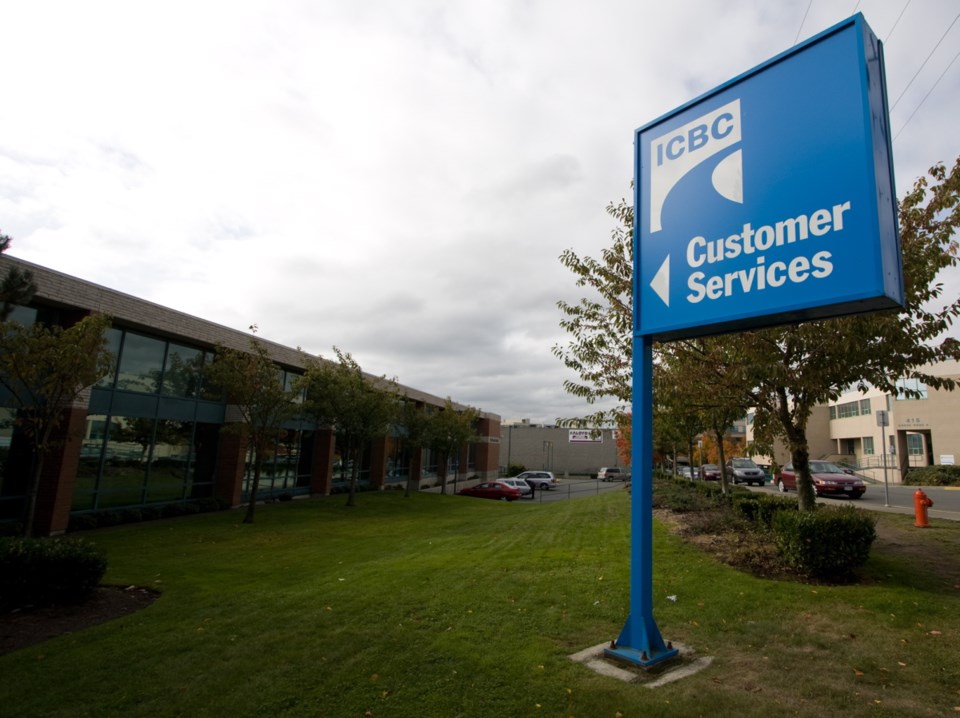Are vehicle owners prepared to face a massive increase next year in the cost of Insurance Corp. of B.C’s compulsory basic insurance? You should be, if ICBC’s forecasting models are correct. One scenario would require a jump in rates in the range of 45 per cent, or about $380 per vehicle, next November.
This is not ICBC’s estimate, because our public insurer does not provide multi-year forecasts for its basic insurance, nor for the additional optional coverage that most responsible policyholders purchase.
In fact, ICBC is disputing a recent order by the B.C. Utilities Commission requiring our insurer to make its multi-year financial forecast publicly available. ICBC is, in theory, owned by the people of this province, yet we cannot get access to this key planning information.
ICBC says releasing the information could “prejudice … its basic insurance policyholders and thereby harm ICBC’s financial interest.” A strange way to run a $4.8-billion operation with about 2.8 million voting policyholders.
Don’t blame the management at ICBC for the looming rate shock, or for being unwilling to give vehicle owners fair warning of what is approaching. ICBC is an agent of the provincial government, and as such, it must do as cabinet instructs. I am sure that ICBC management, armed with stacks of actuarial projections, have warned the politicians that the government’s basic-rate suppression policy would end in tears. But their political masters have clearly decided that it would be unwise to get 2.8 million voters upset with the financial state of ICBC months before an election.
The finances of ICBC began to deteriorate shortly after the government thought it could moderate the annual growth in basic rates by using some of the accumulated savings in the capital reserve.
In 2013, the government ordered the B.C. Utilities Commission, the nominal regulator of the compulsory program, to set annual rate increases at no more than 1.5 percentage points over the previous year’s increase. Since then, basic policyholders have been paying less than the true cost of the basic coverage. The rapid rise in claims costs, together with the effects of low interest rates, have forced ICBC to draw down about $1.2 billion of its capital reserve.
All insurers require sufficient assets to cover liabilities and to leave an adequate margin to allow for unexpected adverse events. Using a risk formula applied to private insurers by the federal regulator, the government has long required that the basic insurance operate with at least a capital ratio of 100 per cent, and the optional program with a ratio of 200 per cent. At ICBC’s urging, the utilities commission set a ratio of 145 per cent as the norm for the basic program, while ICBC decided that 260 per cent would be the operating norm for the optional program.
Three years ago, the actual capital ratios were close to these levels but have steadily declined to fund the basic structural deficit. The 4.9 per cent rate increase of the current year is well below ICBC’s forecast requirement of a 15.5 per cent increase. If ICBC’s forecasts are correct, the capital reserve will drop to the minimum level for both programs, leaving ICBC’s policyholders at much greater risk of not being able to cope with an unexpected adverse event.
The government has also been employing the rate-suppression gambit with our electricity rates, but because B.C. Hydro can add the shortfall to its huge debt, the game has continued. ICBC cannot use deferral accounts and cannot run a debt. The current price for basic insurance must increase dramatically next year because the government’s nihilistic approach to financial management has destroyed the policyholders’ accumulated savings.
Let us hope that the utilities commission will force our auto insurer to finally tell us how bad next year’s rate shock will be.
Richard McCandless, a retired senior manager with the B.C. government, is an intervener in the B.C. Utilities Commission’s review of ICBC’s 2016 rate proposal. More information about ICBC and its finances can be found at bcpolicyperspectives.com.



